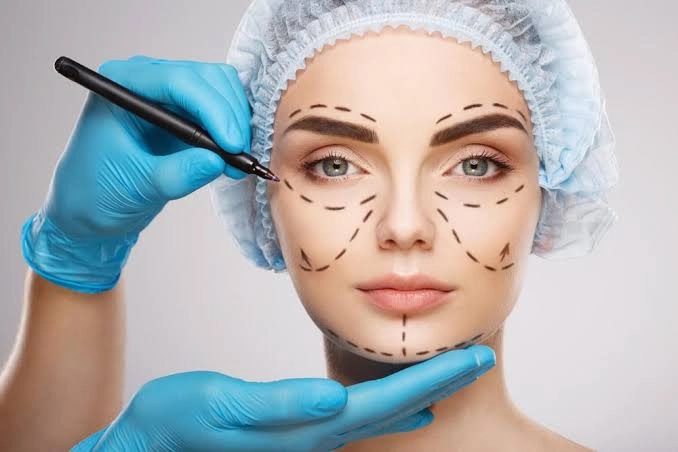Exploring the Mental and Social Aspects That Drive People to Consider Aesthetic Surgical Treatment as a way of Improvement
The choice to seek cosmetic surgical treatment often prolongs past mere aesthetics, intertwining with social and psychological dynamics that merit thorough assessment. Variables such as self-esteem, pervasive social elegance standards, and the pervasive influence of social media merge to form individual motivations for medical improvement.
The Duty of Self-Esteem
Self-worth considerably influences a person's choice to seek cosmetic surgery. Individuals with low self-confidence usually perceive themselves in a negative light, resulting in feelings of insufficiency regarding their physical look. This unfavorable self-perception can drive them to look for medical treatments as an approach of boosting their self-image. The need for improvement in one's appearance is frequently linked to a belief that such adjustments will elevate their overall self-regard and self-confidence.

Ultimately, the duty of self-worth in the decision-making process concerning cosmetic surgery highlights the complex interplay between body image, individual contentment, and psychological health and wellness. Understanding this partnership is critical for health care professionals to ensure that people are making notified decisions rooted in practical expectations and emotional health.
Societal Beauty Requirements
Influenced by pervasive media portrayals and social narratives, social beauty criteria play a vital role in forming individuals' assumptions of their own bodies. These standards are commonly characterized by an idyllic form of appeal that emphasizes qualities such as youthfulness, balance, and slimness. As these suitables are bolstered through numerous channels, including movie, tv, and marketing, people frequently internalize these messages, resulting in frustration with their all-natural look.
The implications of these societal norms expand beyond aesthetic choices; they can impact self-confidence, psychological health, and interpersonal connections. People that regard themselves as disappointing these standards may experience sensations of insufficiency, motivating a need for plastic surgery as a way of attaining social authorization. This search is frequently fueled by the belief that complying with these suitables will improve not only physical appearance however likewise social standing and personal satisfaction.

Influence of Social Media Site
The impact of societal charm requirements is additional intensified by the rise of social media platforms, where curated pictures and idealized depictions of appeal are common. Users are continuously subjected to filtered and edited photos, which typically illustrate unattainable physical qualities. This direct exposure cultivates a culture of comparison, leading individuals to assess their very own look versus these commonly impractical criteria.
Social network influencers and celebrities frequently promote aesthetic treatments, stabilizing the concept that surgical enhancements are a viable methods for attaining societal ideals (plastic surgery rancho cucamonga). The visibility of these improvements can produce an understanding that undergoing cosmetic surgery is a basic practice, thereby affecting people to consider comparable treatments as a pathway to boosted self-worth and social acceptance
Moreover, the interactive nature of social media sites enables for immediate responses with likes and remarks, even more enhancing the wish to satisfy preferred appeal standards. Such communications can intensify sensations of inadequacy and drive people toward plastic surgery as a method of acquiring recognition. Eventually, social media plays an essential role fit perceptions of appeal, which considerably influences the decision-making processes bordering cosmetic surgical treatment.

Cultural Perspectives on Appearance
Throughout numerous societies, assumptions of appearance are deeply rooted in historic, social, and economic contexts, forming people' views on elegance and charm. In numerous cultures, appearance serves as a significant pen of identity, affecting social condition, specialist chances, and personal partnerships. As an example, in some societies, light skin is typically connected with wide range and benefit, while others might idealize darker complexion as symbols of stamina and authenticity.
Additionally, traditional elegance standards are usually continued via cultural narratives, media depictions, and family affects, leading to varying perfects across different areas (plastic surgery rancho cucamonga). In Western societies, the emphasis on young people and physical health and fitness typically drives people toward cosmetic improvement, while in particular Eastern societies, more refined adjustments aligned with standard visual appeals might be favored
Globalization and the proliferation of digital media have actually better complicated these dynamics, producing a hybridization of elegance ideals that transcends geographical limits. As people significantly browse these social narratives, the pressure to adapt certain look criteria can lead to the wish for cosmetic surgery, reflecting a complicated interplay of individual desires and social worths. Recognizing these social viewpoints is essential in dealing with the motivations behind cosmetic surgical treatment considerations.
Mental Effects of Plastic Surgery
Many people looking for cosmetic surgical treatment report experiencing extensive mental effects that can considerably alter their self-perception and psychological well-being - plastic surgery rancho cucamonga. The desire for physical improvement typically comes from underlying issues such as reduced self-confidence, body dysmorphic disorder, or social pressures regarding appeal standards. For some, the prompt post-operative stage can lead to a short-lived increase in self-confidence and contentment with their appearance, fostering a feeling of empowerment
However, these favorable feelings might not be withstanding. Study suggests that while some clients experience boosted self-confidence, others may encounter increased anxiousness or anxiety if their assumptions are not satisfied. This discrepancy can emerge from impractical suitables bolstered by media representation and cultural stories bordering appeal.
Furthermore, the emotional over at this website ramifications of plastic surgery extend past the individual. Relationships with friends and family might be strained as social characteristics shift, bring about sensations of isolation or alienation. Ultimately, the emotional impacts of plastic surgery are multifaceted and intricate, needing careful factor to consider by both potential individuals and medical care suppliers to guarantee educated decision-making and practical expectations.
Final Thought
To conclude, the decision to pursue plastic surgery is substantially affected by a combination of self-esteem problems, societal beauty criteria, and social viewpoints on look. The prevalent reach of social networks better worsens these stress, advertising impractical ideals that individuals frequently aim to acquire. Recognizing these emotional and social factors is vital for addressing the inspirations behind cosmetic surgical treatment, highlighting the demand for a much more nuanced conversation surrounding appeal and self-acceptance in modern society.
The choice to go after cosmetic surgery often expands beyond plain aesthetic appeals, linking with social and mental dynamics that warrant thorough evaluation. Eventually, social media plays an essential duty in shaping understandings of charm, which significantly impacts the decision-making processes bordering cosmetic surgical treatment.
As people try this progressively browse these social stories, the pressure to adjust to specific look requirements can lead to the desire for cosmetic surgery, showing a complex interaction of personal ambitions and social values.In conclusion, the choice to go after cosmetic surgical procedure is considerably affected by a combination of self-confidence problems, social beauty standards, and cultural point of views on look. Comprehending these mental and social aspects is vital for addressing the inspirations try this web-site behind cosmetic surgical treatment, highlighting the need for a much more nuanced discussion surrounding beauty and self-acceptance in modern culture.